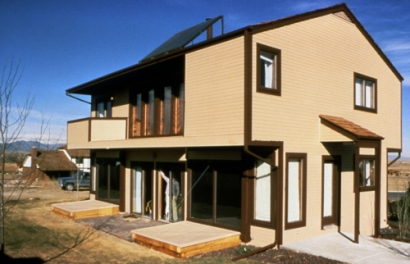
Solar power has been a growth industry in South Carolina since 2014, when state lawmakers unanimously passed Act 236. The measure was signed into law that same year by then-Governor Nikki Haley.
Among other things, the Act established the legality of third-party ownership of rooftop solar -- making South Carolina one of the first southern U.S. states to allow solar leasing.
Under the scheme, large funds own the solar panels (and the power they produce) and lease the panels to homeowners on whose roofs the panels are installed.
The agreements call for the funds to take all ownership responsibilities of the panels and grid connections, and the homeowners get discounted utility bills with little or no upfront costs.
Another provision of Act 236 required the utilities SCE&G and Duke Energy to commit to getting 2 percent of their power from renewables by the end of 2020, and another expanded longstanding restrictions on a cap of net-metered commercial installations. Under Act 236 the cap was increased to 2 percent and the allowable commercial system size was expanded from 100 KW to 1 MW.
The measure was hailed as a breakthrough. In a written statement, the Coastal Conservation League said at that time that "Taken together, the bill’s key provisions – giving customers the freedom to lease solar, permitting utilities to introduce distributed energy programs, and ensuring equitable net metering rules – are complimentary approaches that will expand customer options and increase cost effective renewable power in South Carolina."
But today, the state's solar industry views the provisions quite differently. Bret Sowers, chairman of the SC Solar Business Alliance, an industry group, has said if the caps remain in place, they will jeopardize thousands of jobs and scores of new businesses that created them.
A new bill, H4421, the SC Electric Consumer Bill of Rights Act, seeks to eliminate the caps on solar energy.
But the debate over the bill has been fraught. It comes against the backdrop of a failed $9 billion investment in two new nuclear power plants that will never be built.
In the wake of that disaster, proponents of H4421 argues there's never been a better time to embrace renewables and take other steps to diversify the state's energy mix.
But the utilities serving the state are opposing the measure, insisting that Act 236 has been an unqualified success and that there's no reason to change it.
"(H4421) is a government mandated solar welfare policy that robs from pensions and retirement funds for many South Carolinians to bolster the bottom line of California’s SunRun and other out-of-state rooftop solar developers," Duke Energy has said in a statement. "It is absolutely not needed.”
H4421 will likely reach the floor of the South Carolina General Assembly today. A vote could come late today or, more likely, given the anticipated lengthy debate, sometime Thursday.

